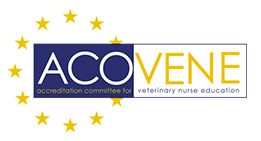- Have any questions?
- +44 020 7222 2001

The Crucial Role of Specialized Veterinary Nursing in Feline Healthcare
8 Agosto 2024
Veterinary Nursing Stream Takes Center Stage at EERVC 2024 in Belgrade
14 Agosto 2024Evidence-based veterinary nursing is a cornerstone of modern veterinary practice, essential for ensuring high-quality patient care.
It involves making clinical decisions based on the best available scientific evidence, combined with clinical expertise and a focus on the individual animal's welfare and owner preferences. This approach ensures that veterinary nurses and technicians provide optimal care by integrating research findings with practical experience and considering the unique circumstances of each patient.
For veterinary nursing schools seeking accreditation by the Accreditation Committee for Veterinary Nurse Education (ACOVENE), it is mandatory to include evidence-based veterinary nursing in their curriculum. This requirement emphasizes the importance of educating students on using the best available evidence to inform nursing decisions and patient care in veterinary settings. By incorporating these teachings, students develop critical skills in evaluating and applying research, fostering a culture of ongoing learning and professional growth.
The process of evidence-based veterinary nursing involves several key steps: asking relevant clinical questions, acquiring the best evidence, appraising its quality and relevance, applying it in practice, and assessing the outcomes. This systematic approach ensures that care is not only effective but also tailored to each animal's specific needs and the preferences of their owners. It highlights the vital role of clinical expertise in interpreting and implementing evidence, especially in situations where research may be limited or specific patient factors require customized care.
By integrating these practices, veterinary nurses can improve patient outcomes, enhance the efficiency of care, and uphold the highest standards of professionalism. Challenges such as accessing research and time constraints are acknowledged, but the benefits of better-informed decision-making and improved animal welfare outweigh these hurdles.
In summary, evidence-based veterinary nursing combines scientific rigor with compassionate care, ensuring that veterinary nurses can confidently make decisions that best serve their patients and clients. As a critical component of ACOVENE-accredited veterinary nursing education, it prepares future professionals to meet the evolving demands of veterinary medicine with expertise and empathy.




